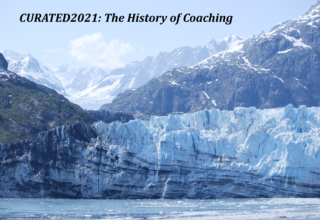
According to Howard Gardner (1985), 1956 is the year that a “cognitive revolution” began in psychology and education, based on the realization that even when mental processes cannot be directly observed, rigorous inquiry can lead to solid conclusions about them. George A. Miller (1956) pointed out that people (observably) have trouble keeping more than seven digits in mind and posited (unobservable) limits to short-term memory and the resultant “chunking” of remembered content into seven or less units. Noam Chomsky (1957) argued that behaviorist principles were simply inadequate to account for human language and therefore there must be internal mental structures that enable people to learn and use it. Thinking became a legitimate topic for scientific inquiry, and this led learning theorists on a quest to find processes that activate mind. They no longer just observe behavioral results of the mind’s (unknowable) responses to stimuli. Adult education could no longer assume an empty vessel into which an instructor poured predetermined content. It did not take long for the empty vessel assumption to be questioned for all learning at any age. Cognitive psychology and learning theory shifted to inquiring about experience to inform us about why we do what we do and how we learn to do it.
Further eroding mechanistic assumptions, the very possibility of an objective observer was brought into question by quantum discoveries (Stapp, 2007). Although quantum theory was first discovered by Max Planck in 1900, its implications are so far reaching that many years and scores of experiments confirming its predictions were required for its acceptance. In essence, quantum mechanics is the general theory that applies in all instances, whether the phenomena being studied are extremely small or extremely large. Quantum theory overturns an assumption of universality that had held for three centuries. Newtonian theory, or classical mechanics, applies only to large objects-so is a special case of quantum theory. At the quantum level at which the brain operates, the very questions that people ask make a difference as to the responses that nature gives. We cannot understand objective observations without also asking about subjective experiences.
From behaviorism and psychometrics through developmental psychology to cognitive psychology and learning theory, scientific attempts to explain behavior shifted during the 20•h century from demanding pure objectivity through allowing experience to requiring subjectivity.
In understanding contributions to coaching, 1t 1s important to distinguish between psychology as scientific inquiry, on the one hand, and the application on the other hand of psychology along with medicine, philosophy, and other fields to psychotherapy and counseling. Psychology is not psychotherapy. Psychotherapy has its own history, research traditions, and theoretical roots. Many psychologists practice psychotherapy and counseling, but so do many psychiatrists, other medical doctors, psychiatric nurses, clinical social workers, and clerics. Within these professions, it is understood that knowing why we do what we do is not the same as feeling satisfied and happy with our lives.
Download Article 1K Club

















